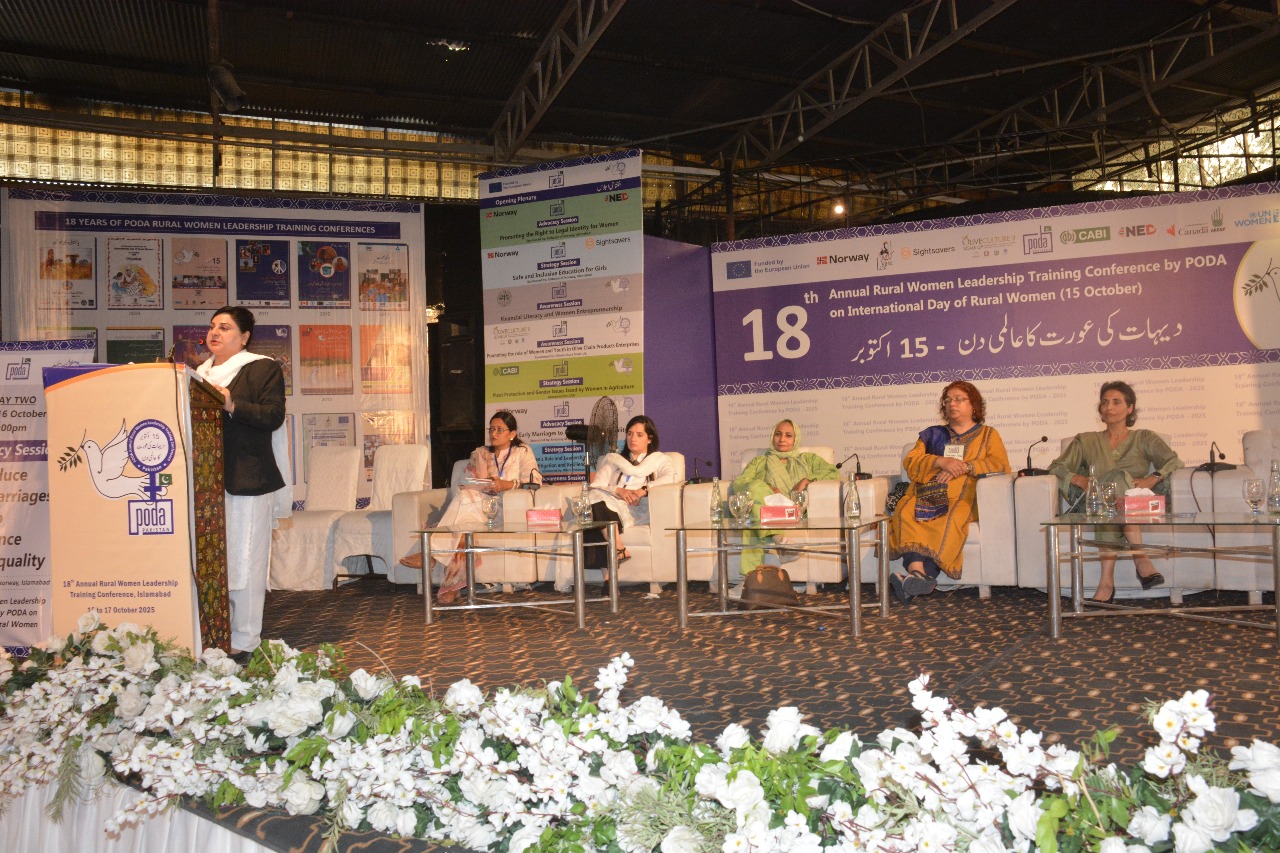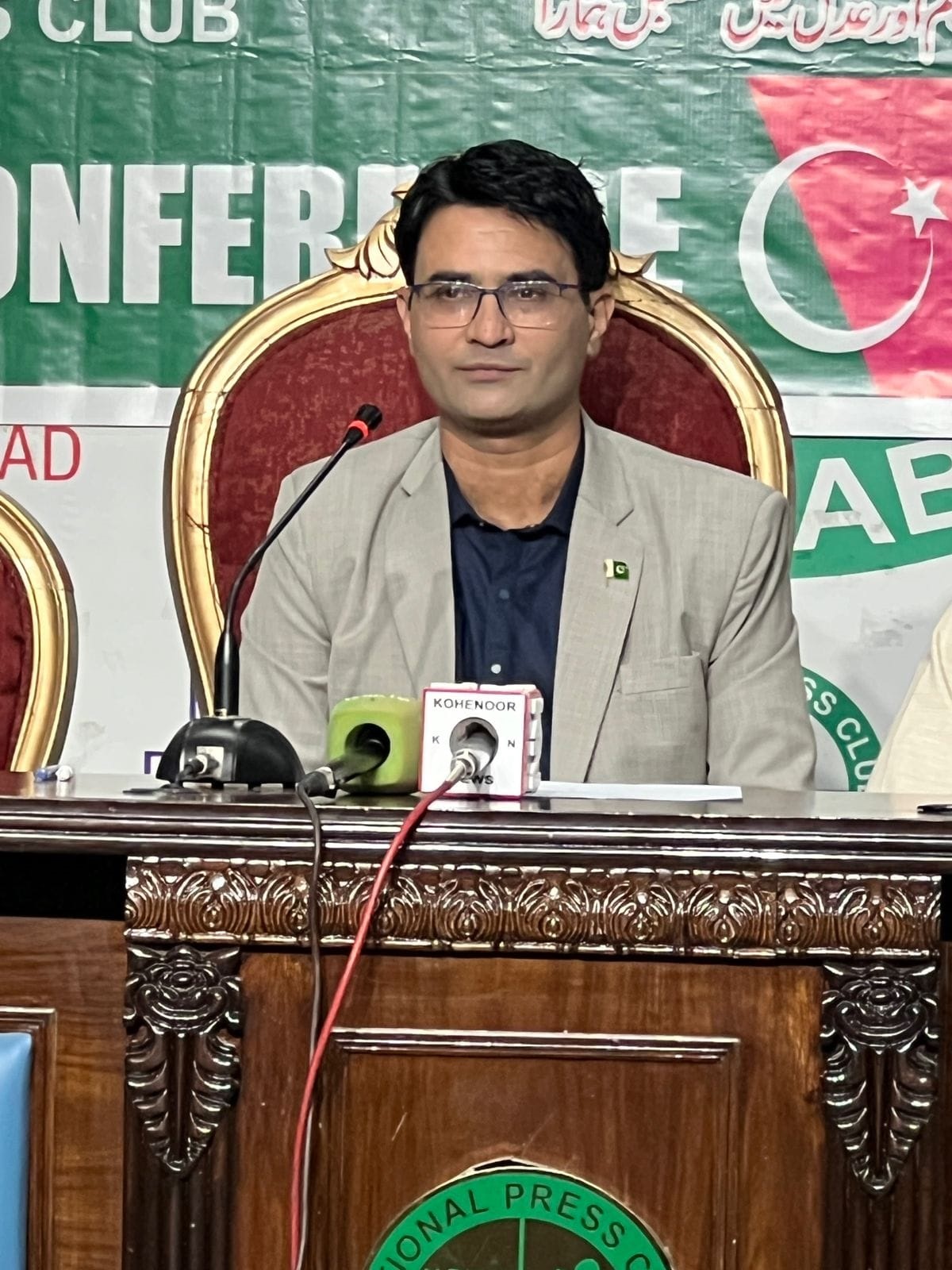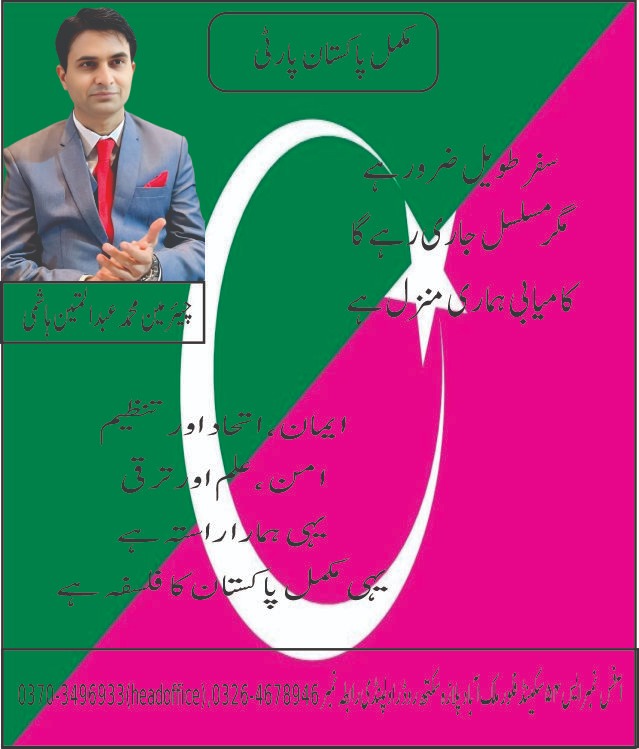Islamabad, Thursday, 16 October 2025: On the second day of the 18th Rural Women Leadership Training Conference at Lok Virsa, over 500 women leaders from more than 100 districts across Pakistan unanimously adopted a resolution to set 18 years as the minimum legal age of girls for marriage. PODA (Potohar Organization for Development Advocacy) is organizing a three-day 18th Annual Rural Women Leadership Training Conference at Lok Virsa, Islamabad, which will conclude tomorrow with a recognition ceremony honoring rural women leaders for their dedication to the progress and development of their communities
In her address as a keynote speaker, Deputy Attorney General of Pakistan, Advocate Hifza Bukhari, outlined the key features of the ICT Child Marriage Restraint Act 2025, emphasizing the mandatory requirement of identity cards as a critical measure for effective enforcement. She also underscored the importance of establishing a uniform minimum age of marriage across the country.
Fauzia Viqar, Federal Ombudsperson for Protection against Harassment at the Workplace, chaired the session titled “Solution Strategies Development Session to Reduce Early Marriages to Enhance Gender Equality.” She emphasized the importance of understanding laws that safeguard women’s rights and raising awareness about them, noting that such knowledge is vital for helping those in urgent need of protection for their fundamental rights.
Prof. Brigadier Dr. Mamoona Mushtaq, representing the Society of Obstetricians and Gynecologists of Pakistan, gave a detailed presentation on the health complications associated with early marriages. She discussed the root causes and stressed the need for effective implementation of legislation aimed at protecting girls’ rights.
Speaking during the session on” Dialogue with Women Diplomats on Journey of Empowerment”, several women leaders and diplomats shared insights on gender equality, the importance of education and health, and the need for strong legislation to protect and empower women.
The Ambassador of Ireland said that their society began to transform decades ago when education from primary to secondary level was made free and compulsory. “Education is the key—real investment in it serves as a catalyst for meaningful change and the achievement of gender equality,” she said.
“Education and health are our real resources which are on our priority agenda,” said Dorsaf Maaroufi, Ambassador of Tunisia to Pakistan. “Empowered women are not a political slogan – they are essential for a functioning and empowered society. This belief is part of our national fabric.” She highlighted Tunisia’s achievements, including a 98 percent literacy rate, driven by decades of investment in education and healthcare.
Ambassador Maaroufi also noted that Tunisia had just celebrated Rural Women’s Day, and expressed her appreciation for how it is marked here by PODA: “I am learning from you how to celebrate International Rural Women’s Day in our country.”
Harerimana Fatou, High Commissioner of Rwanda to Pakistan, highlighted Rwanda’s strong commitment to gender equality, citing the country’s significant progress in women’s political participation and achieving their rights. She shared the achievements and struggles of Rwandan women, saying that Rwanda has the highest percentage of women in parliament globally—reaching 64 percent. “In Rwanda, the minimum age of marriage is 21 for both girls and boys, which has empowered women to pursue their aspirations and follow their dreams,” she said.
Rita Dhital, Ambassador of Nepal to Pakistan, shared the challenges Nepal faces due to its mountainous terrain and predominantly rural population – with 80 percent living in rural areas. She said that while the constitution guarantees gender equality, the reality remains challenging. “We still have to struggle to fully realize what is promised. Literacy stands at 85 percent for men and 70 percent for women. Our constitution requires that the President and Prime Minister must be of different genders – this shows our commitment, but there’s still a long way to go.” She added that women currently hold 40 percent of seats in local bodies, but more needs to be done to ensure true representation of women, who form half of the population.
Samina Fazil, President of the Islamabad Women’s Chamber of Commerce, inaugurated the women’s pavilion at the event, which featured stalls showcasing the work of women entrepreneurs and artisans.
Mohtarma Safia Saeed, MPA from Punjab, stressed the urgent need to combat gender-based violence through stronger laws and their effective implementation. “We must work to eliminate violence against women, girls, and children. Strengthening legislation on the minimum age of marriage is one critical step toward reducing gender-based violence,” she said. She supported the demand to raise minimum age of marriage of girls to 18 years to reduce gender inequality.
Other sessions held on Thursday included: “Promoting the Role of Women and Youth in Olive Value Chain Enterprises,” supported by OliveCulture – ScaleUp, the Italian Cooperation, and the Government of Italy; a Technical Education Session on Plant Protection and Gender Issues Faced by Women Farmers in Agriculture; and “Enhancing Women’s Role and Leadership in Climate Adaptation, Mitigation, and Resilience.”
The three-day conference, dedicated to empowering rural women leaders, will conclude tomorrow with a ceremony honoring their efforts to protect fundamental rights and improve the lives of women across the country. # Ends.
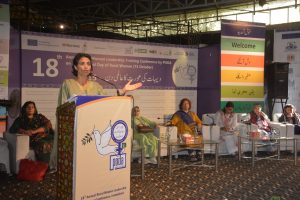
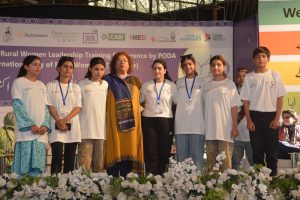
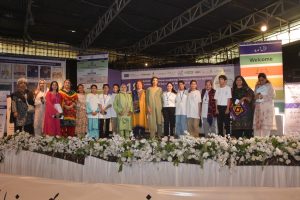
 0092-313-5000-734
0092-313-5000-734

